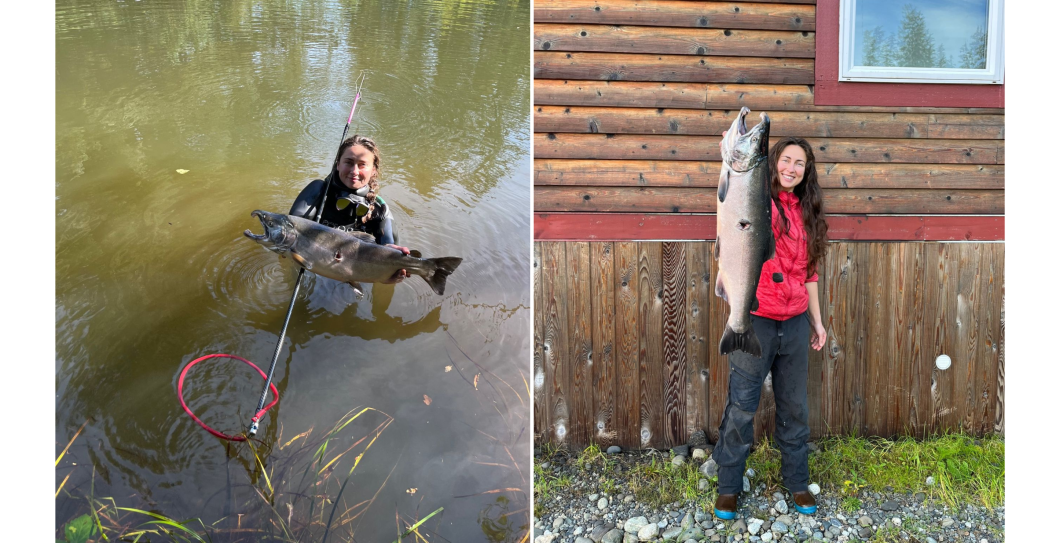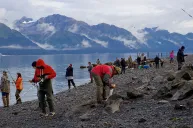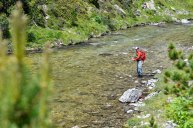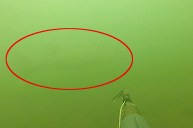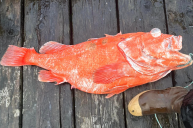Anyone who loves fishing for salmon has undoubtedly dreamt of heading to the Far North and catching a monster fish. Most dream of flossing or trolling for their once-in-a-lifetime salmon—but not Katya Karankevich. She prefers spearfishing, and to say that she's good at it is an understatement: Last year, Karankevich set the record for the world's largest silver salmon caught with a pole spear. And now, PBS has made a riveting documentary about it.
Spearfishing is a type of underwater hunting; the technique is ancient but the sport has gained increasing popularity in recent decades. Spearfishers use handheld weapons such as spears or harpoons to impale fish.
Karankevich holds the world record for taking a silver salmon with a pole spear, which does not have a trigger like a spear gun. Her record fish weighed 10.2 pounds, taken on September 6, 2022.
Spearfishing is no easy feat, requiring a fisherman to be a strong swimmer and have skill with a pole spear. Spearfishers also need to be able to get close to fish in order to kill it, as most pole spears have a range of about 20 feet. Spearfishers can use diving gear, like SCUBA tanks, or free dive without oxygen.
As Karankevich explains, spearfishing "combines fishing, it combines hunting, and it combines a lot of athleticism." She calls it "the most challenging and sometimes uncomfortable sport."
Spearfishers target everything from barracuda to yellowtail to halibut in the sea, to trout and pike in freshwater.
"To spearfish a salmon is very different from a lot of other saltwater fish," she says. "They are very suspicious and will dart even if they see a shadow."
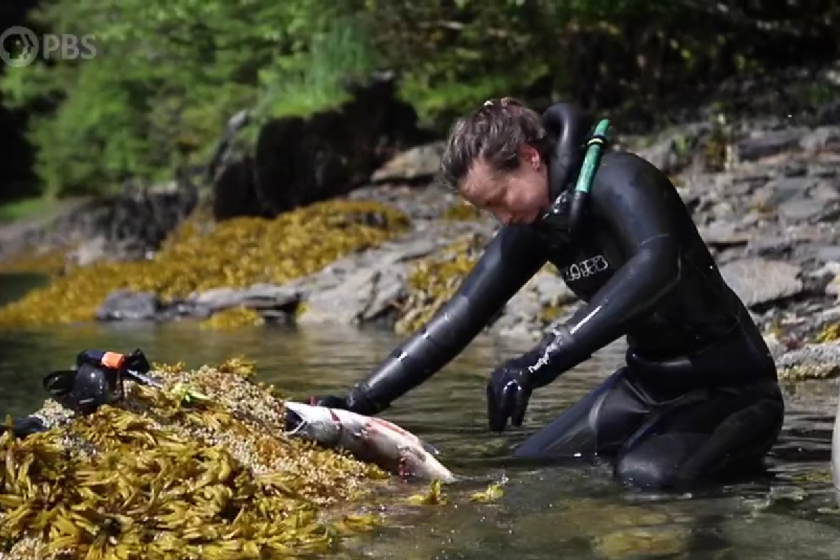
Indie Alaska, PBS
Karankevich fishes the salmon run with her friend Christina Ahlstrom, in Prince William Sound, a body of water off the Gulf of Alaska known for its striking landscape of steep mountains and glaciers, and its plentiful fish.
It's a popular place for tourists and cruises, as well as commercial fishermen. To escape the crowds, Karankevich and Ahlstrom find where the fish are schooling by kayak and then dive for them from there.
PBS's Indie Alaska series, which aired the episode on Karankevich, is an Emmy-award-winning, original series produced by Alaska Public Media and PBS Digital Studios. The series has been running for 10 years and 12 seasons, and puts a spotlight on inspiring, authentic, and independent Alaskans and their stories.
New episodes are released weekly and air on Alaska Public Media TV on Wednesday at 7:50 PM or can be found on the Indie Alaska series YouTube page. Previous episodes highlight one of Alaska's longest Aurora Borealis researchers, a Filipino-Hawaiian family food truck, and the role water taxis play in Alaska's culture.
READ MORE: Fisherman Nearly Breaks International Rockfish Record—Except For One Technicality
